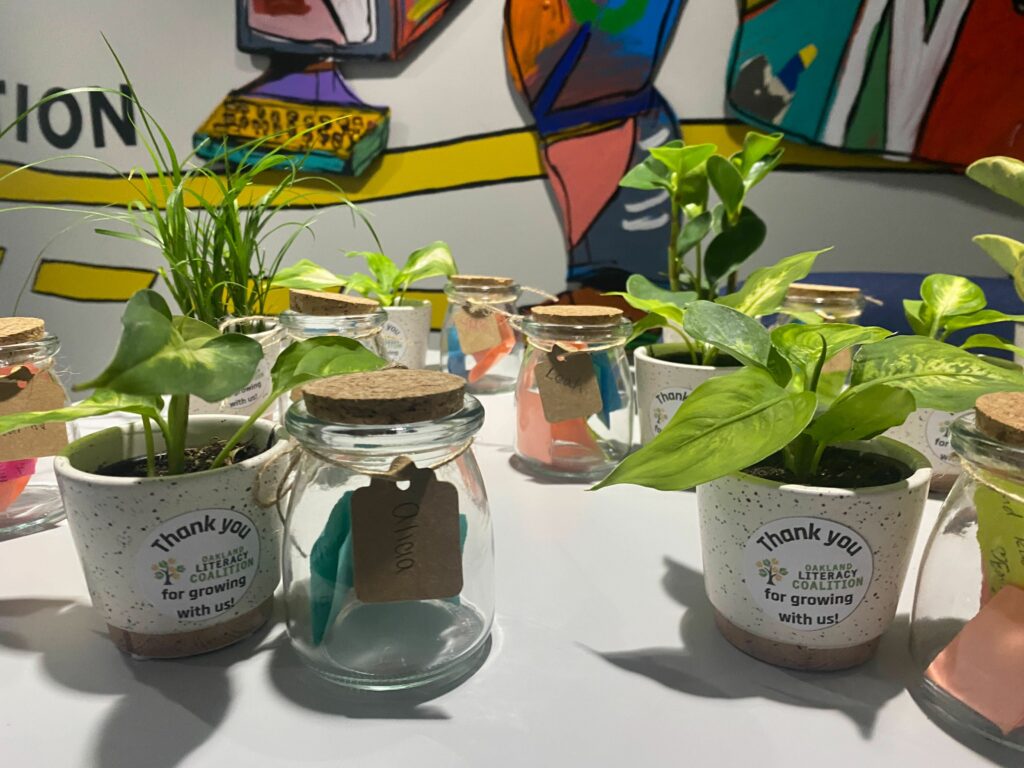Blog
Building Community and Expertise: Oakland Literacy Providers Gather at OLC Spring Institute
Share
On June 10 and 11, literacy providers who provide tutoring and programming for Oakland students had the chance to step back from their daily routines and come together in person to add some valuable tools to their tool belts and build community with each other. Participants came from 8 OLC member organizations serving students throughout Oakland and the East Bay.
Facilitated by reading specialist Celestina Lee and Seeds of Learning Program Manager Emily Grunt, the Institute aimed to refine our individual and collective understanding of evidence-aligned reading instruction to better serve and understand the needs of children across Oakland. This initiative was designed to bridge gaps in literacy education by integrating research-backed practices into everyday teaching, from understanding the needs of multi-language learners to an in-depth breakdown of vowels.
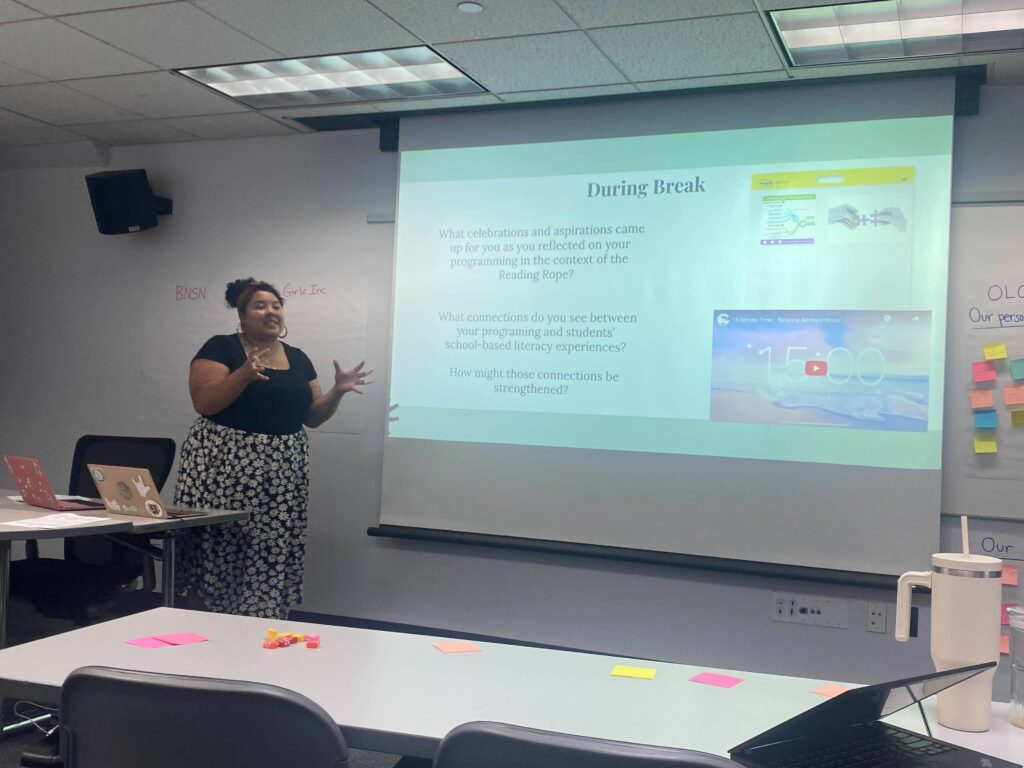
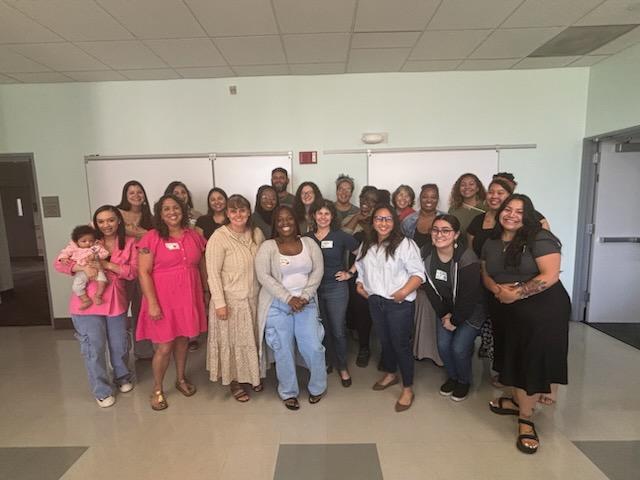
“Leading an organization focused on positive literacy outcomes for elementary school students in Oakland is my life’s greatest work — and it’s so incredibly difficult. Navigating budgets and bureaucracies often pulls me away from the part of the work that I love the most, centering students, and sharpening my expertise around the science of reading,” said Reading Partners Bay Area Executive Director Hector Salazar. “I truly felt spoiled being able to take two full days with my programmatic leadership to strip down to the basics of why this work is so crucial. The facilitators were engaging, knowledgeable, and added levity that will carry me through this summer as we prepare for programming in the fall.”
Over the two days, participants did a deep dive into teaching reading to older students and multilingual learners. Through a mix of whole group and breakout sessions, participants reflected on which parts of the Reading Rope their programs support, practiced essential literacy skills, and explored the SEEDS framework with expert guidance. They also strengthened their understanding of the SIPPS curriculum to ensure alignment with OUSD students’ existing literacy routines.
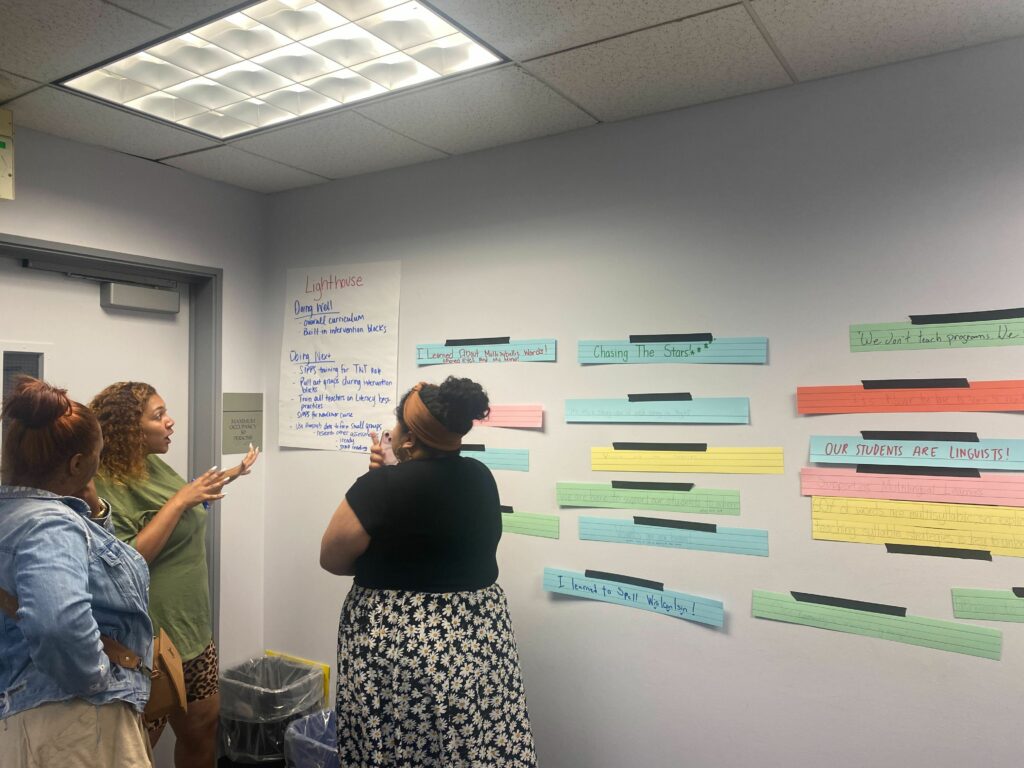
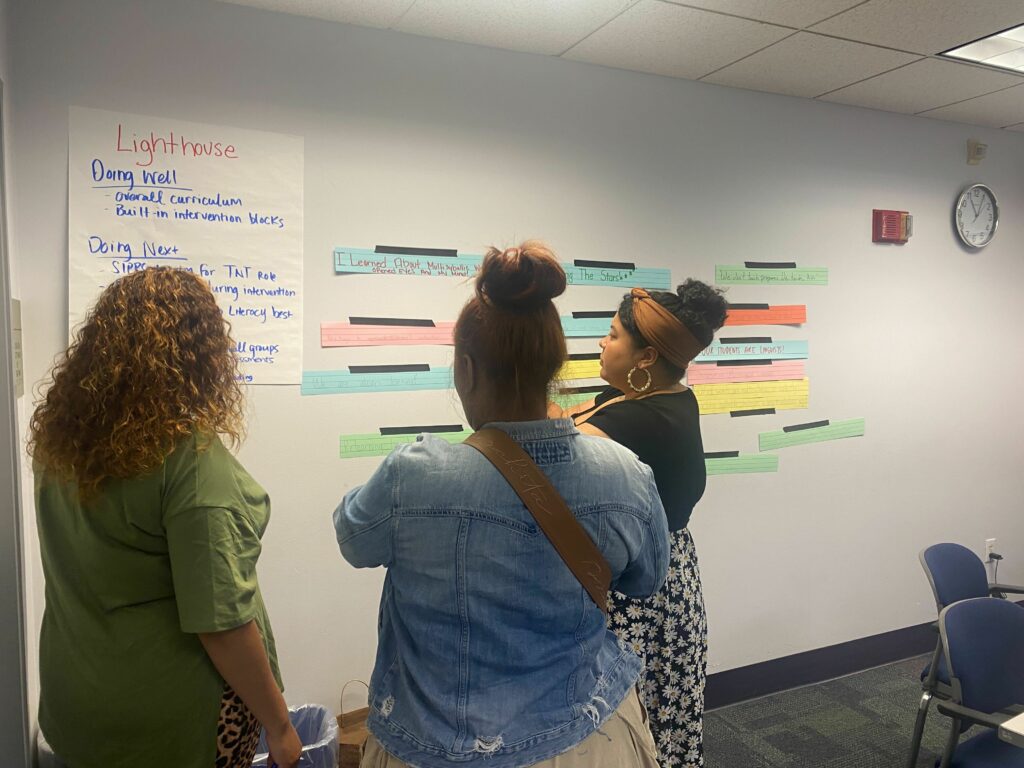
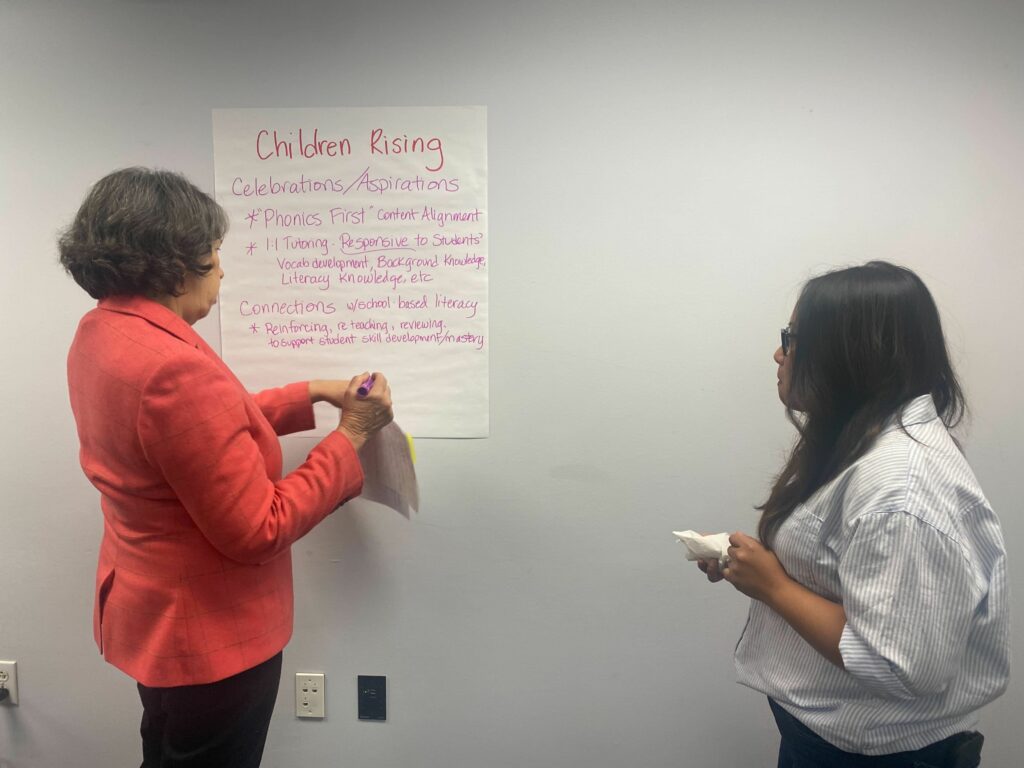
Participants left equipped with actionable steps and a renewed enthusiasm for evidence-aligned literacy practices.
